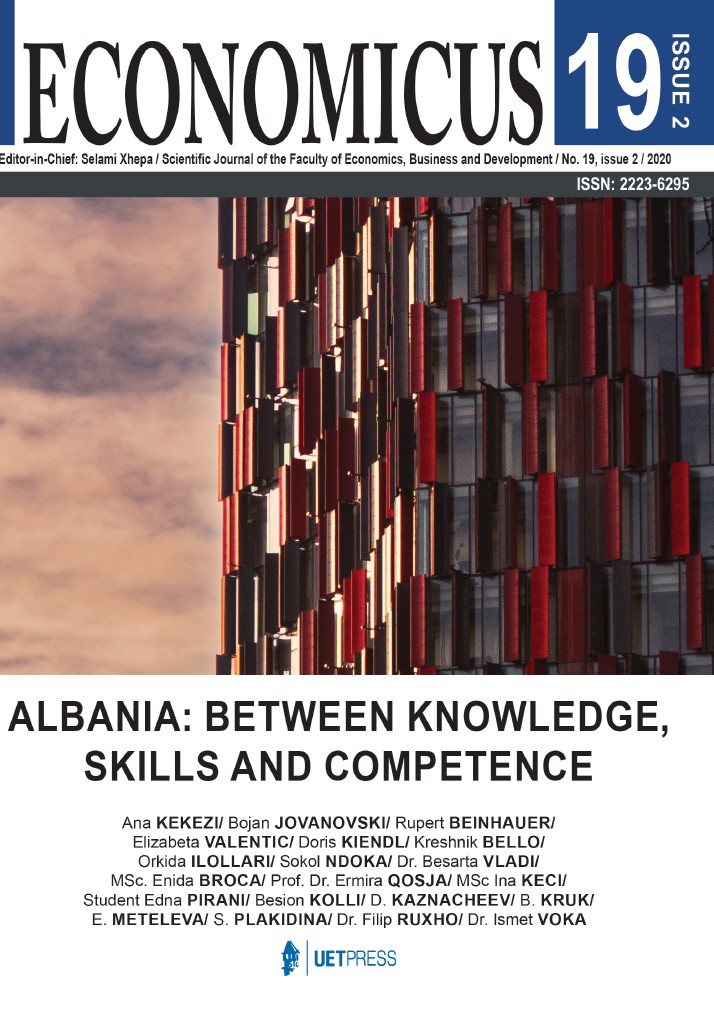Rebus approach in training professionals for digital economics through educational information technologies
Rebus approach in training professionals for digital economics through educational information technologies
Author(s): D. KAZNACHEEV, B. KRUK, E. METELEVA, S. PLAKIDINASubject(s): Business Economy / Management, State/Government and Education, Accounting - Business Administration, ICT Information and Communications Technologies, Socio-Economic Research, Sociology of Education
Published by: Shtëpia botuese “UET Press”
Keywords: digital economics; information society; additional professional education; educational IT-technologies; learning environment; self-assessment; e-commerce; Internet of Things; Artificial Intelligence;
Summary/Abstract: The development of the digital economy raises issues of harmonization of students’ knowledge, skills and competences with actual social challenges. In this regard, educational institutions around the world actively investigate innovation approaches to teach disciplines of higher and additional professional education. The approach of the European educational Erasmus+ REBUS project represents one such approach, in the frames of which a course “Digital Entrepreneurship” is taught at SibSUTIS. Experience in teaching the course showed that student training in the learning environment Mahara with the use of such tools as Moodle and LEVEL5 allows students to acquire additional education of the European quality by developing new competences in a quicker and more effective way. Moreover, REBUS approach allows to develop, implement and teach new courses for students of telecommunication and infocommunication profiles. In the light of global trends in the development of digital technologies, and also in order to logically continue the trend of cooperation between SibSUTIS and universities of the European Union, it is necessary to consolidate and develop the competences achieved by students through the design on further educational programs and commercially successful cases of Russian and European IT companies in the field of e-commerce, Internet of Things and Artificial Intelligence. The relevance of the study of commerce in the digital economy is due to the fact that information and communication technologies (ICT) are becoming increasingly important for businesses, consumers and governments in all sectors of the economy and around the world. The Internet of Things Entrepreneurship program allows to improve an ability to develop business plans, manage projects on computer networks of devices. The Artificial Intelligence Entrepreneurship program aims to improve an ability to develop business plans, manage projects on creation of networks that can correctly interpret external data, learn from these data and use the results to achieve specific goals and objectives through flexible adaptation.
Journal: ECONOMICUS
- Issue Year: 19/2020
- Issue No: 2
- Page Range: 105-117
- Page Count: 13
- Language: English

